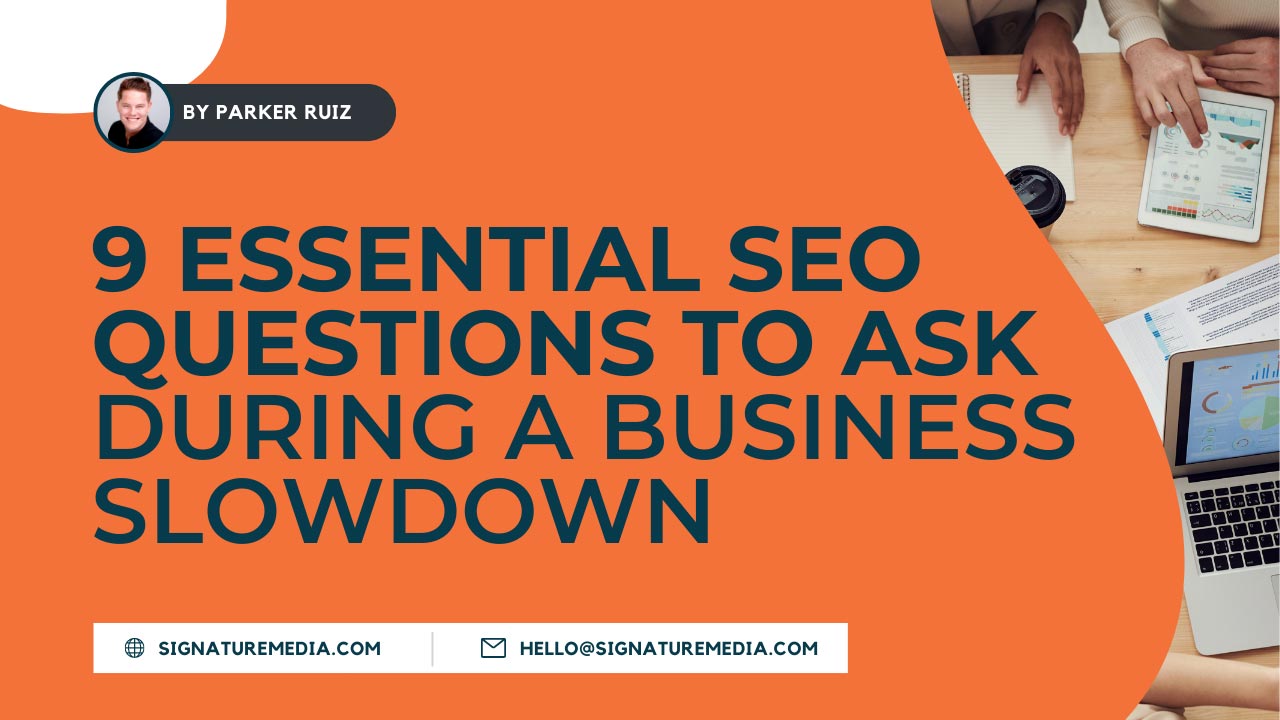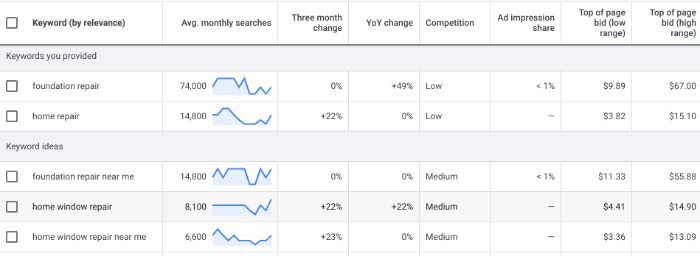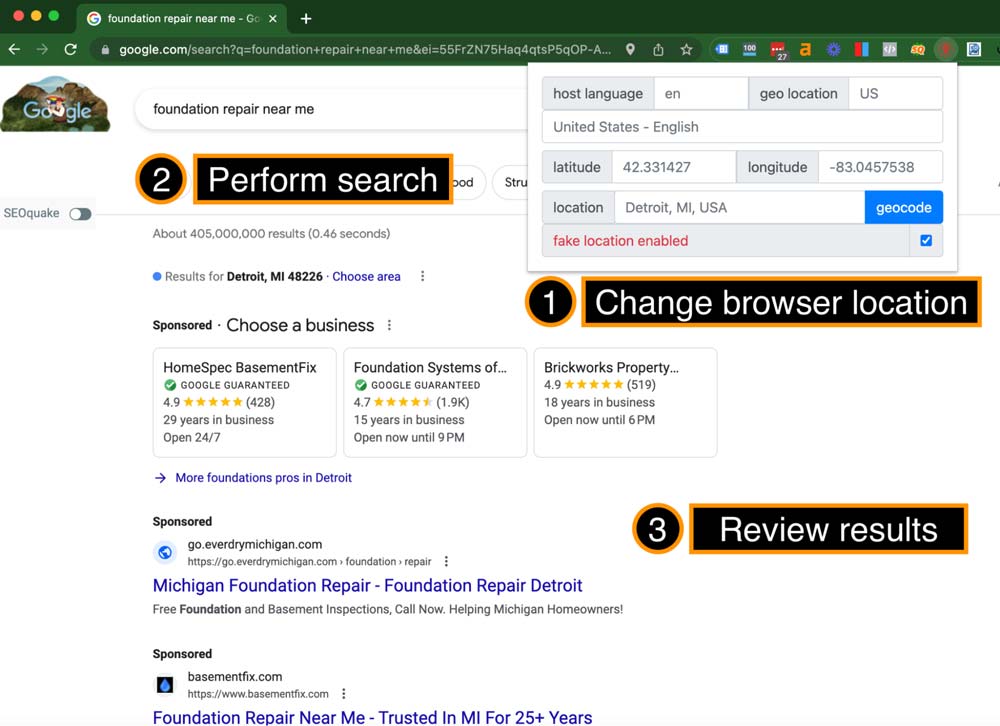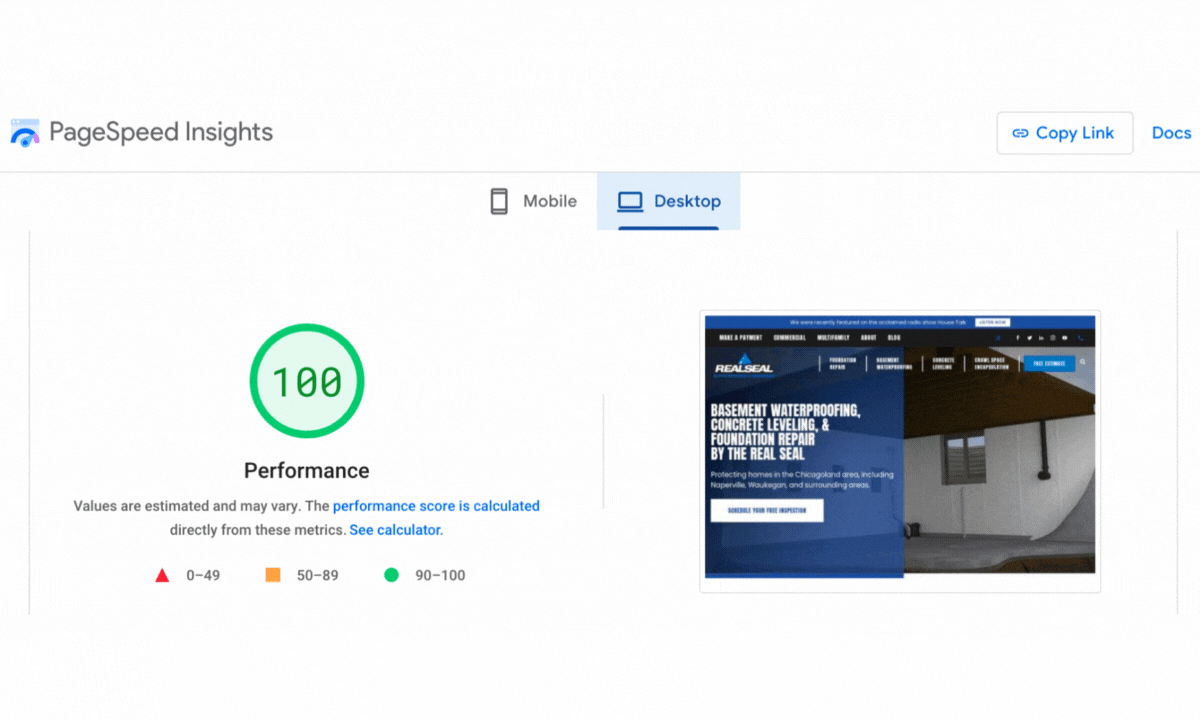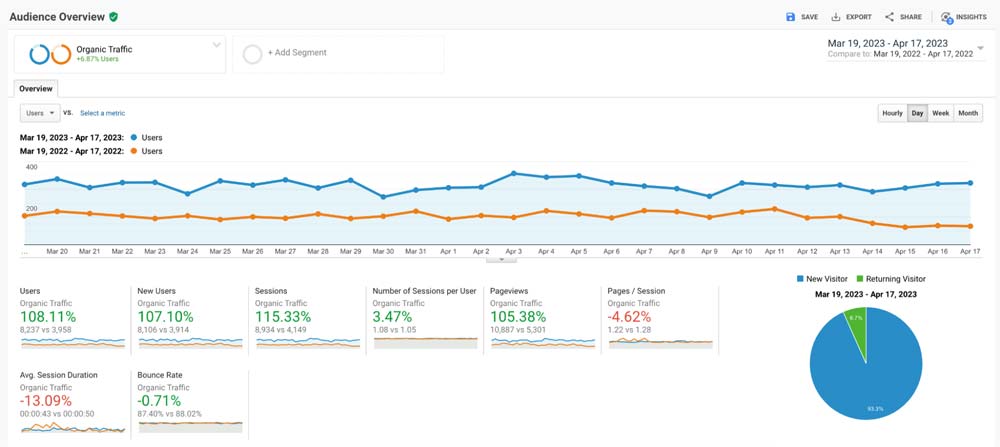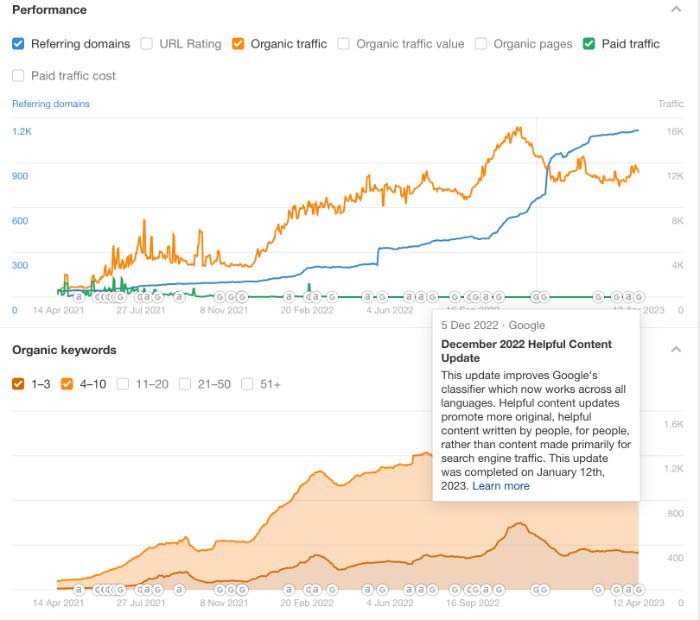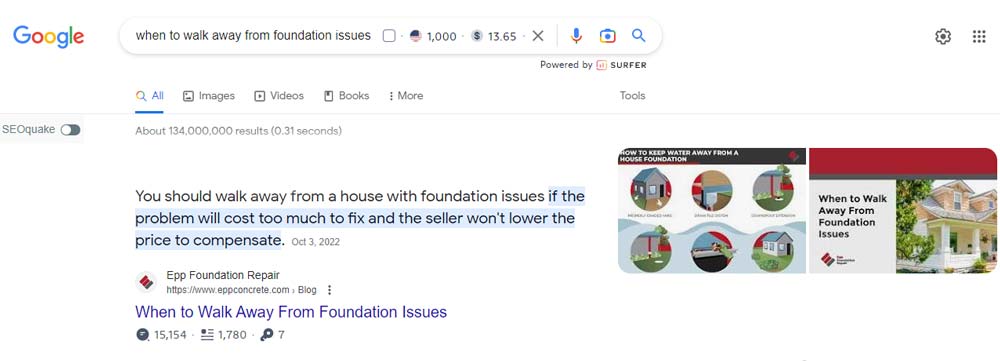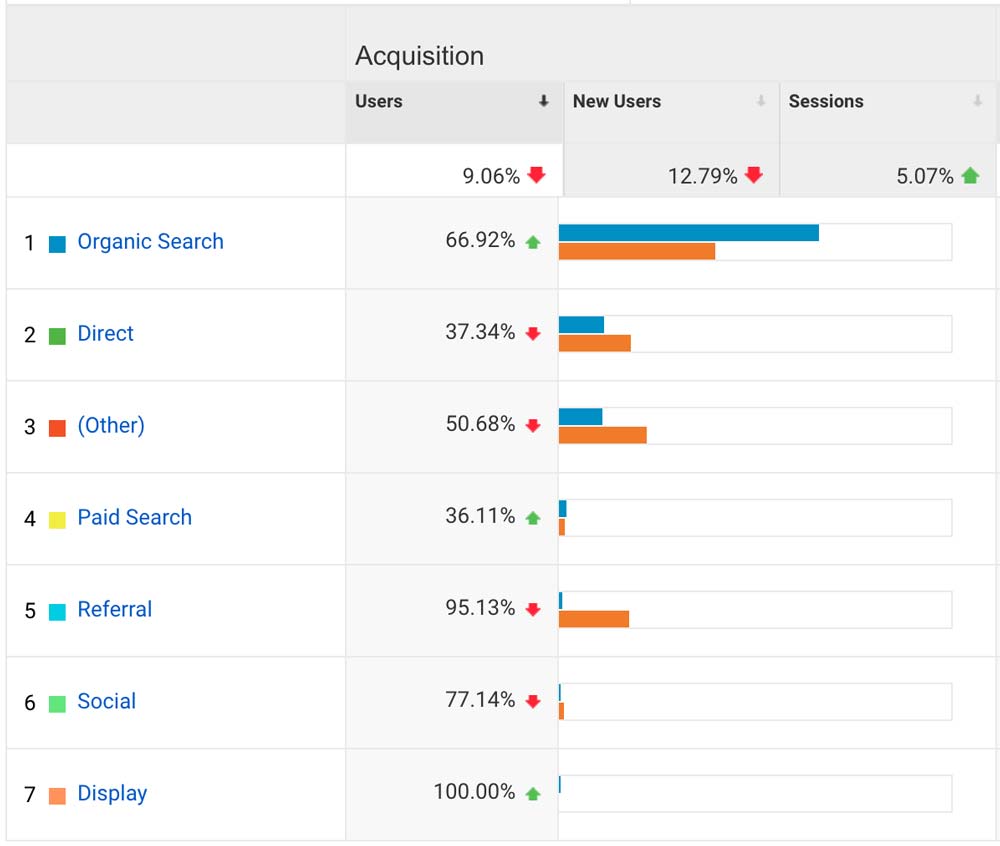Table Of Contents
For small to medium business owners, daily operations can be so demanding that it’s easy to overlook the importance of online marketing. However, ensuring SEO performance is a critical aspect of business success. When business starts slowing down, you might feel overwhelmed by how little you know about this crucial element of your business – you may not even know what questions to ask your SEO Partner (whether it is an Agency, a Consultant, or In-House Staff). Don’t worry – we are here to help!
This article assumes that you have already ruled out potential sales process issues and have performed a quality check of your call center to make sure inbound leads are being handled and followed up with properly.
This article will help guide you through 9 questions you should discuss with your SEO partner, why the answers matter, and some tips on getting the answers yourself. By taking this proactive approach, you can uncover critical insights that will set up your business for success! Let’s dive in and see what we find.
Before we get started: Consider doing a quality check of your call handling and lead follow-up process. Check on things like missed call rates and response time. If you record calls for quality purposes, review a few inbound calls to see how your team is handling these to ensure no opportunities are being missed.
1) What are my most profitable keywords?
Why the answer matters: Keyword rankings are the linchpin of successful SEO campaigns. All SEO efforts, such as link building, content creation, and on-page optimization, should focus on achieving higher rankings for your most valuable keywords. None of this will be possible unless you have a clear understanding of what those top keywords are.
Your marketing team is working very hard on your SEO strategy, so ensure they have clear objectives and that you’re aligned regarding the keywords. Identifying pertinent words can be challenging; a lack of communication in this area could result in investing resources into key phrases of no relevance.
What you can do: If you have an SEO team, ask them what your top keywords are regarding each service your business offers. At Signature Media, we like to have a list of the top keywords per service the client provides. In addition, we organize many other relevant keywords into buckets for each stage of the buyer’s journey.
To uncover insights on your own, consider taking a closer look at the top-of-page bids of related terms on the free Google Ads Keyword Planner. This metric can provide valuable insights into what competitors have identified as high-converting or potentially lucrative words in your industry.
Now that you’re armed with key information, it’s time to ask the following question!
2) What are my local rankings for my top keywords?
Why the answer matters: Google displays results based on searcher location, so finding where your company lands in these searches is an invaluable asset. Your local rankings will strongly correlate to the number of leads you generate.
Analyzing your local rankings during a slow period will help you to see if the cause is your SEO performance or whether market-related or economic issues are at play.
What you can do: Though an SEO agency may have access to more detailed data, there are other ways of assessing your local rankings without breaking the bank – giving businesses like yours greater control over their success online.
Change your location via a browser extension to check local rankings.
With the help of a browser extension such as GS Location Changer, you can conveniently check your local business ranking by simply changing to any preferred city. Test it with one of your top keywords, such as “[one of my services] near me”, and get an insightful look into what customers from that location will see on Google.
Disclaimer: The software recommended in this article is based on our personal experience and research, and may not be suitable for everyone. We make no representations or warranties of any kind, express or implied, about the completeness, accuracy, reliability, suitability, or availability of the software or related information contained in this article. Any reliance you place on such information is therefore strictly at your own risk.
After searching, it’s time to assess your online visibility. Are you on the map? What’s your ranking within that listing of results? Have any links to your website been included in organic search results beneath or above the map section? Hopefully, your business lands in the top three results – but even if it doesn’t, use this data as an opportunity and develop a plan with your SEO team for improving rankings for that specific location-keyword combination.
Apply the same process to each combination of primary keywords and top cities. It will be worth it in the end.
Another option for checking your local rankings would be to ask your SEO agency; they may have a similar report.
I rank highly on Google, but why do I not get enough leads?
With the right visibility, your business can enjoy plenty of inbound leads. But economic or market-related issues could be at play if you’re consistently ranking within the top three search results yet still having trouble connecting with customers.
Your website may be ranking highly in Google for multiple keywords, but if the traffic is not relevant to your business or industry, does not provide a good user experience, or if your call-to-action (CTA) is weak or ineffective, visitors may not convert into leads.
Before ruling out any additional factors, take a few simple steps to ensure there are no technical barriers getting between you and your leads – like testing contact forms on your website, live chat software if used, and phone systems (including tracking numbers used for lead generation efforts).
3) How long does it take for my website to fully load?
Why the answer matters: Research has revealed that customers are unlikely to wait for long; many will click away if your page doesn’t load within one or two seconds! Don’t let potential leads slip through your fingers – take steps now to ensure smooth and swift loading on all devices.
A website can get a lot of traffic but still load very slowly – so don’t assume that just because you have many visitors, your website is fully optimized.
What you can do: If you’re looking to get an accurate assessment of how quickly your website is loading, Google’s Page Speed Insights offers a great way to measure performance. By simply entering the URL and clicking “Analyze”, it will generate a score between 1-100 (100 being the best/fastest) which can help give insight into any potential areas that need improvement or optimization going forward. Be sure to check your score for both Mobile and Desktop.
4) What is our current monthly organic web traffic compared to the same time last year?
Why the answer matters: Analyzing your organic web traffic year-over-year is the most reliable indicator of success in SEO. This is because seasonality, among other factors, can cause significant fluctuations from month to month – making it difficult for you to draw accurate conclusions about performance based on monthly comparisons alone. By looking at metrics over a longer period of time and comparing them between years – such as June 2019 compared with June 2018 – we are able to get more contextual insights into our progress towards strategic goals.
What you can do: Ask your marketing agency to prepare a report of organic traffic for the last one to three months compared to the same period last year. Ask them to create two reports, one for visitors from your service area only, as well as global traffic. If local traffic is down, this could be contributing to slowness.
Side note: What on earth are “organic website visitors”?
Organic website visitors are those whose visits were earned, not bought. These individuals have found your site after using a search engine and proactively choosing to click through on the organic results rather than the paid ones – which means their intent is strong! As such, these valuable interactions make up what we call organic traffic – providing an engaged audience that’s more likely to take action and convert into customers.
5) What process is my SEO partner using for link building?
Why the answer matters: Link building is a pivotal factor in SEO – it can be the key to a successful digital marketing strategy or lead to harsh penalties from Google. Numerous link-building strategies could result in your website being marked as spam by search engines like Google. But just how serious is this violation? According to Search Central of Google: “Sites that violate our policies may rank lower in results or not appear in results at all.” Yes, violating Google’s link spam guidelines can result in your website’s ranking suffering or being removed from Google altogether (de-indexed). Ensure you are using above-board strategies when tackling link-building so as not to hit roadblocks down the line!
According to Google, some examples of spam link-building include:
- Low-quality directory or bookmark site links
- Forum comments with optimized links in the post or signature, for example: “Thanks, that’s great info! – Paul paul’s pizza san diego pizza best pizza san diego“
- Excessive link exchanges (“Link to me and I’ll link to you”) or partner pages exclusively for the sake of cross-linking
What you can do: Identifying spammy backlinks pointing to your website can be tricky and may require an experienced professional. However, it is always best practice to start by inquiring about the link-building process of any agencies you are working with – as this will help ensure that only ethical SEO practices have been employed.
6) What is the spam score on our website?
Why the answer matters: Moz’s Spam Score offers a comprehensive evaluation of any website, enabling you to see if it has been using deceptive tactics that may be penalized by search engines. This metric is based on an advanced machine learning algorithm that assesses the domain or URL through several factors like inbound links, content quality, and quantity, as well as other suspicious behaviors.
What you can do: By checking the spam score of your domain, you can protect yourself from shady SEO tactics. Moz provides a free Link Explorer tool to help you do that (you will need to create a free account to use the tool). A low rating (1-30%) indicates minimal risk, while medium ratings (31-60%) can alert you to potential issues with potentially inappropriate link profiles or content quality. If the result is high – 61-100% – further investigation may be required since this could mean more aggressive techniques have been employed on your site.
7) How were we affected by the most recent Google Algorithm Update?
Why the answer matters: Working with a reputable SEO partner will ensure that your website is well-prepared to handle any Google updates. Asking how recent algorithmic changes have impacted rankings and traffic lets them know you’re serious about understanding – and succeeding in – the ever-evolving digital landscape. Should anything be amiss, it’s likely an indicator of either content or strategy issues which can then be addressed promptly for optimum performance across all search channels!
What you can do: Inform yourself about Google’s recent ranking updates. Your SEO partner may have access to a professional tool like ahrefs site explorer and can show you the performance of your website as it relates to Google Algorithm Updates – this may lead to some valuable discoveries. If you notice a drop in rankings after a certain update, you will want to explore more about that update and see what you can do to adjust.
8) Are we producing regular, high-quality content on our website?
Why it matters: Producing high-quality content on your website is important for SEO because search engines aim to provide the best possible results for their users. High-quality content is more likely to be engaging, informative, and useful to users, which increases the likelihood of users spending more time on your site, sharing your content, and linking back to it. This, in turn, helps to improve your website’s authority and credibility, which are important factors in determining your search engine ranking.
On the other hand, low-quality content is likely to be ignored by users, and search engines may even penalize your website for producing spammy or irrelevant content. Therefore, it is essential to focus on producing high-quality content that meets the needs and interests of your target audience to improve your website’s SEO.
What you can do: To evaluate the quality of your content using Google’s Guidelines on creating helpful content. While much of what makes content “high-quality” is a matter of opinion, a professional content audit can provide you with deep insights about which content on your website is performing and which is not.
9) Have other advertising campaigns changed that could be contributing to a slowdown of leads?
Why it matters: If after answering the previous questions in this article, you find nothing to be concerned about with your SEO, you may want to think about whether you had any other advertising campaigns running this same time last year (or in a previous, busier year). Did you pull the plug on some ads? It wouldn’t be fruitful to assign blame to your SEO partner for a slowdown when a successful ad campaign was canceled.
What you can do: With the help of your SEO partner or another qualified professional, look at your Acquisition Overview report in Google Analytics. Compare the recent slow period to the same period in a previous, busier year. Were you getting lots of traffic from an advertising source that you no longer use? Even better would be if you have had “conversion tracking” set up properly to track contact form submissions, phone calls, chat leads, and more and properly attribute them to their source. When such tracking is in place, it is a breeze to determine which advertising channels are producing the best results.
Ask the right questions and get on the right track.
Ultimately, it is essential to take the time to review how your SEO team is helping your business. Asking these nine questions can help you uncover the root cause of a business slowdown and determine if any strategy changes are needed. Although things may look bleak now, asking the right questions is the first step to getting back on track.
If you feel like something needs to be changed or improved upon within your SEO strategy, don’t hesitate to take action! Working with professionals who understand search engine optimization will make all the difference in helping you get the results that you desire for your business.
If you need help understanding what exact steps should be taken in order for your SEO goals to be met, please contact Signature Media for a free consultation. We are here to help, and we hope your business succeeds in the days ahead.
